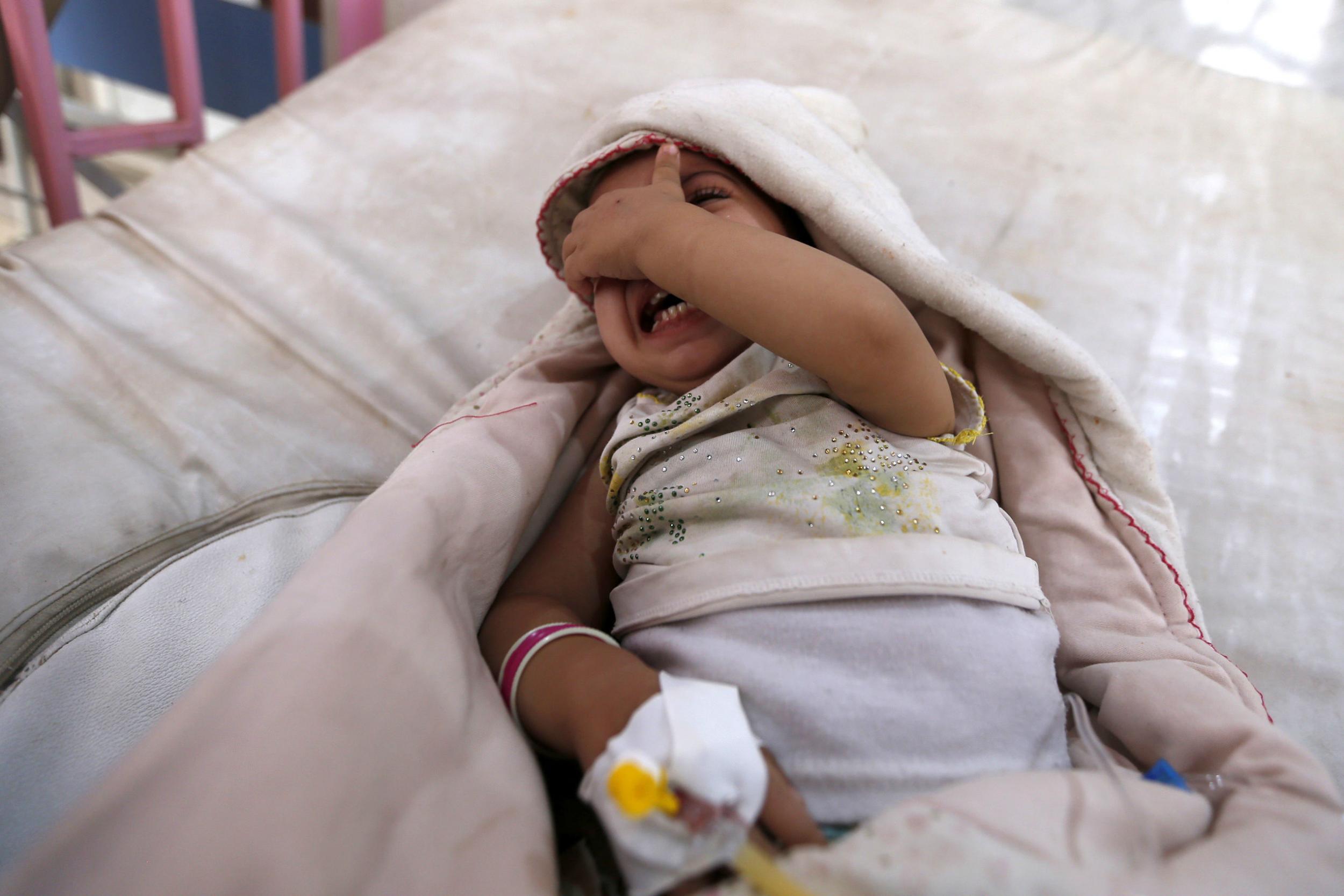UK and US play 'crucial role' in creating conditions for spread of cholera in Yemen, say researchers
Half-a-million people in the country have been infected with the disease

Your support helps us to tell the story
From reproductive rights to climate change to Big Tech, The Independent is on the ground when the story is developing. Whether it's investigating the financials of Elon Musk's pro-Trump PAC or producing our latest documentary, 'The A Word', which shines a light on the American women fighting for reproductive rights, we know how important it is to parse out the facts from the messaging.
At such a critical moment in US history, we need reporters on the ground. Your donation allows us to keep sending journalists to speak to both sides of the story.
The Independent is trusted by Americans across the entire political spectrum. And unlike many other quality news outlets, we choose not to lock Americans out of our reporting and analysis with paywalls. We believe quality journalism should be available to everyone, paid for by those who can afford it.
Your support makes all the difference.Britain and the US have played “a crucial role” in creating conditions conducive to the catastrophic spread of cholera in Yemen, according to authors of a letter published in The Lancet.
An analysis by the researchers at London’s Queen Mary University, found that eight of ten of Yemen’s cholera deaths occur in rebel-controlled areas. Combining the latest data from the World Health Organisation and mapping that on to areas under government and revel control, the three researchers found the cholera outbreak was disproportionately affecting areas controlled by Houthi rebels.
The rebels are the target on a two-year military campaign by a by a Saudi Arabia-led coalition that has received logistical and political support from the UK and the US. British companies have continued to sell weapons to Saudi Arabia despite growing concern about civilian casualties.
“Both sides have been accused of disregarding the wellbeing of civilians and breaching international humanitarian law. But the government and Saudi-led coalition that supports it command far greater resources,” wrote researchers Jonathan Kennedy, Andrew Harmer and David McCoy.
“As a result, Houthi-controlled areas have been disproportionately affected by the conflict, which has created conditions conducive to the spread of cholera."
They added: “Saudi-led airstrikes have destroyed vital infrastructure, including hospitals and public water systems, hit civilian areas, and displaced people into crowded and insanitary conditions. A Saudi-enforced blockade of imports has caused shortages of, among other things, food, medical supplies, fuel and chlorine, and restricted humanitarian access.”
Mr Kennedy said in an additional statement: “Saudi Arabia is an ally of the UK and USA. American and British companies supply Saudi Arabia with huge amounts of military equipment and their armed forces provide logistical support and intelligence. “This backing has made the Saudi-led airstrikes and blockade possible, and therefore the UK and USA have played a crucial role in creating conditions conducive to the spread of cholera.”
In June, Unicef and the WHO released a statement saying that Yemen was “facing the worst cholera outbreak in the world”. Earlier this week, the WHO said more than half a million people in Yemen had been infected with cholera since the epidemic broke out in April, as the country struggled to cope with 5,000 new cases a day.
It said at least 1,975 people have now died from the acute diarrhoeal infection caused by ingestion of contaminated food or water. Last month, the organisation estimated that around half of cases and a quarter of the dead were children under the age of 15.
Last week, a draft UN report accused the Saudi military coalition of killing hundreds of children in Yemen.
The report, which has yet to be made public and could still be changed, said that 51 per cent of all child deaths and injuries in Yemen last year were the result of the Saudi-led military operation. It says the deaths were “unacceptably high”.
Saudi Arabia has insisted it is operating within international law.
Andrew Smith of Campaign Against Arms Trade, which sought to stop the sale of British-made arms to Saudi Arabia, said: “The humanitarian crisis in Yemen is among the worst in the world, and the bombardment is making it even worse. This couldn't have happened without the complicit support of governments like the UK, which have armed and supported Saudi forces every step of the way.”
A spokesman for the UK Foreign Office said: “We call on all parties to the conflict in Yemen to avoid any civilian casualties, particularly that of children, and to permit humanitarian access.”
Join our commenting forum
Join thought-provoking conversations, follow other Independent readers and see their replies
Comments